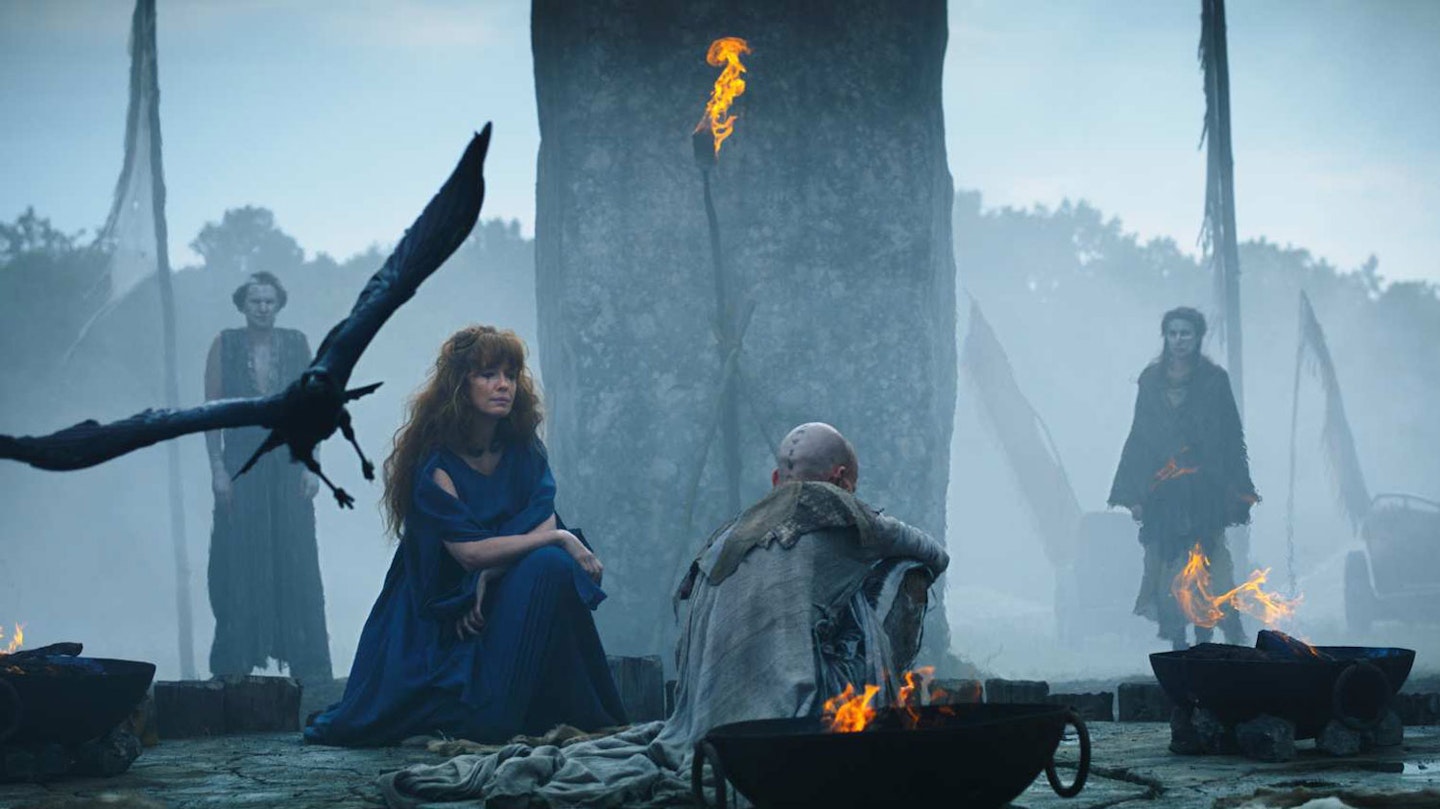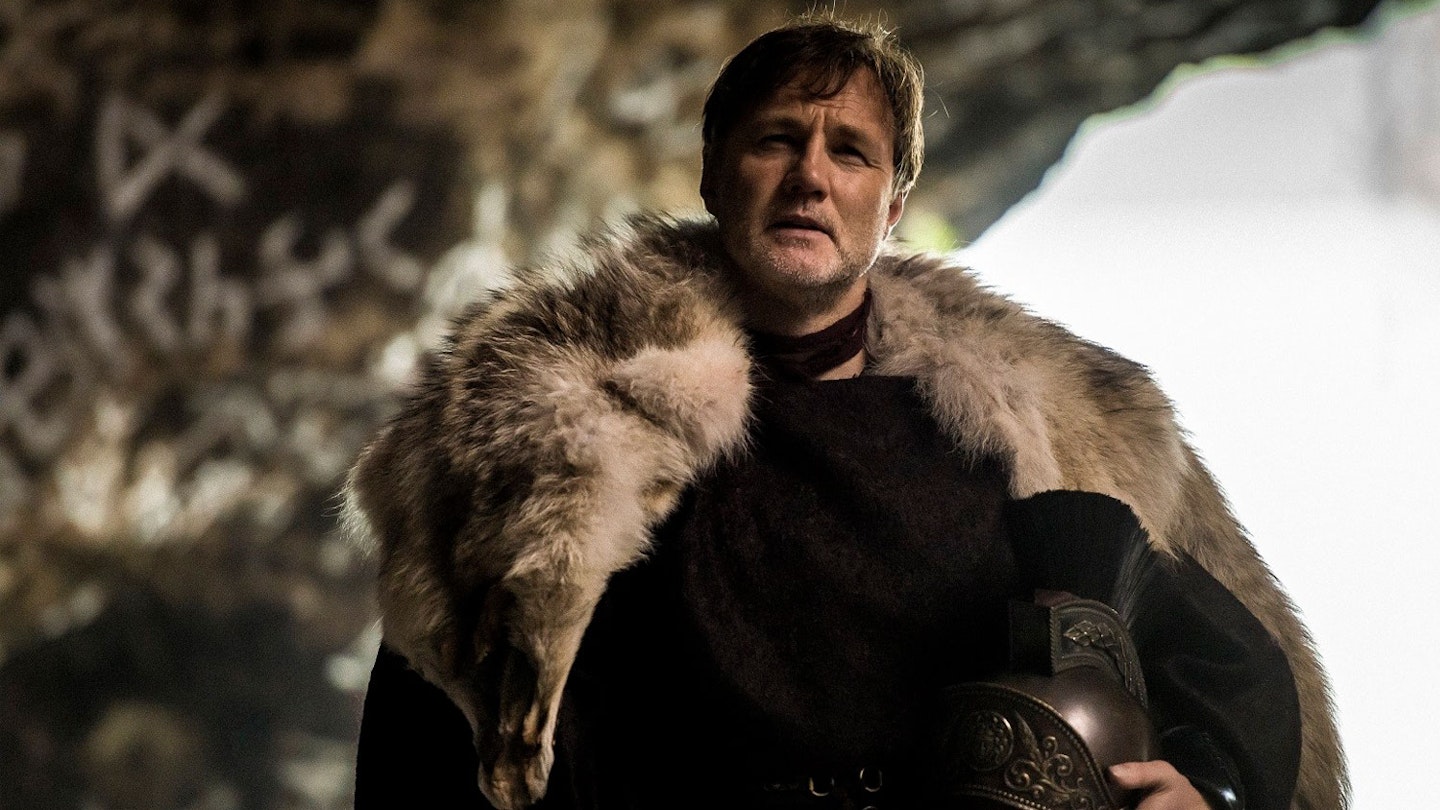With its blood, boobs, body count and cocktail of regional British accents, Britannia has clearly been crafted as Sky Atlantic’s attempt to repeat its Game Of Thrones success. Given George R.R. Martin’s fantasy epic was itself heavily influenced by European history (most notably the Plantagenet squabbles of the Middle Ages), it’s easy to see how taking a similarly lively slice of Britain’s past, populating it with character actors and letting the severed limbs fall where they may must have seemed like a good idea.
While ostensibly rooted in fact, Britannia bears about as much resemblance to the actual invasion of England as Thrones does to The War Of The Roses. In Jez Butterworth’s Britain, druids have been promoted from clerical authorities to muck-streaked sorcerers able to see the future, summon demons and manipulate the minds of men. It is they, rather than the Romans, that make up the series’ most malignant faction, ruling the Britons through fear and intimidation. Unfortunately, that mainly consists of a cadaverous Mackenzie Crook rasping dire prophecies in people’s faces with scant regard for their personal space.
Viewers looking for their fill of historical violence are better served catching up on Vikings or The Last Kingdom.
The Celtic clans are similarly underwhelming. Dour King Pellenor of the Cantii (Ian McDiarmid) spends most of his time grousing about his free-spirited daughter, Kerra (Kelly Reilly). Meanwhile his son and heir, Phelan (Julian Rhind-Tutt), lives in eye-rolling sufferance after the druids decreed his scheming wife (Annabel Scholey) take a burly Gaul as her second husband. That is when he’s not being seduced by Ania (Liana Cornell), the daughter of rival Celtish clan the Regni and Earthly avatar (we’re told) of Brenna, the goddess of war. Meanwhile, Zoë Wanamaker’s Queen Antedia is hellbent on revenge for Kerra’s mid-nuptial castration of her eldest son. Salacious and labyrinthine it most certainly is, but none of these threads prove wildly compelling, nor — by the season’s halfway point, at least — hint at a deeper narrative. Sedition and plotting within Plautius’ ranks have promise but even this suffers from a lack of focus and is frequently undercut by the show’s jarringly uneven tone.
From the off, Britannia can’t seem to decide whether it’s trying to be deathly serious or played for laughs. Horrific scenes of flaying and torture sit awkwardly beside Rhind-Tutt’s Blackadder sardonicism and the capering of Nikolaj Lie Kaas’ demon-possessed hermit. Two skits in particular, featuring a pair of legionaries, a disputed coin toss and ambiguity over who called whose mother what, descend into near Pythonesque farce, yet precede a scene in which a prisoner is blinded with a red-hot knife. The psychedelic title sequence — inexplicably set to Donovan’s Hurdy Gurdy Man — is the peculiar cherry on a very discordant cake.

The show is shot largely on location (in England, Wales and the Czech Republic) and makes decent use of the verdant countryside, but Sky’s budget is a fraction of HBO’s and there are no CGI-enhanced vistas to provide a sense of scale. Equally, for a story about conquest, battles are few and far between, and largely limited to feeble pushing and shoving in the woods.
As a rival Thrones, this isn’t going to give HBO execs any sleepless nights. Meanwhile, viewers looking for their fill of historical violence are better served catching up on Vikings or The Last Kingdom instead.
